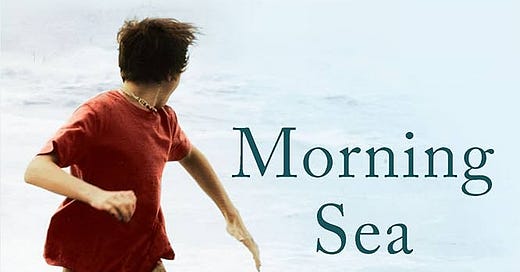Mazzantini’s prose here is simply amazing and quite a departure from her previous work. Sparse, stripped down to its essential components, designed to bring about the highly charged emotion the story is meant to evoke.
The novel draws on a more recent time in Italian history, when Italy was in the grip of Mussolini’s colonial adventures in Africa, in this case, Libya. After World War II, a sizable Italian community remained in Tripoli, known as Tripolini. There they remained, cultivated the land, built their businesses, raised their families, learned Arabic, and became part of every day life. They were the leftovers of colonialism, those who decided to call Tripoli home. It was only after Colonel Muamar Gadaffi took over Libya in 1970 was this Italian community forced to leave.
While the story is set in the present, it is this history the reader has to keep in mind (and it is well documented in the novel) while following the lives of Vito and this mother Angelina. Angelina had been born and raised in Libya and was 11 by the time her family was forced to leave and head back to Sicily, turning them into refugees in their own land. Vito and his mother are vacationing on one of the nearby islands off Sicily (it is presumed. The island is never named) and this particular island is often the stop of most of the African refugees escaping the current crisis in North Africa and the Middle East. The parallel story concerns a young mother and her son Farid, Libyans who are escaping their Bedouin town at the beginning of the revolution that would ultimately see the overthrow and death of Gadaffi. The parallels between the two stories is the crux of the story, told separately, only coming together at the very end and connected by the tiniest but ultimately powerful thread.
It is a story about displacement, the nature of ‘home’, the consequences of history and how it effects those who had no part in it but are merely swept up in its current. The story concerning Jamila and Farid is particularly poignant and tragic (and it contains perhaps the most heartbreaking moment I’ve ever read) and it shines a light on the current refugee crisis. It humanizes it more than any news piece can ever do, getting inside the heads of these characters, getting a taste of their lives, loves, fears. Jamila and Farid are the faces behind those boats packed to the rafters making the treacherous journey across the Mediterranean towards freedom and safety. They’re human beings, no longer faceless refugees that often spark the worst xenophobic reactions in people.
Vito and Angelina’s story is as equally sad. Even though Vito was born in Italy he had grown up listening to his mother’s stories about her childhood in Libya, but throughout it is clear Vito doesn’t really understand the sense of loss and displacement his mother still feels after all these years. It is only when Gadaffi buddied up to Berlusconi and allowed travel to Libya do they make the return trip (along with Angelina’s mother, who had lost a baby there nearly 40 years earlier and was buried in the Christian cemetery shortly before being exiled back to Italy by Gaddafi’s new regime). Things had changed dramatically. It was no longer the home they remembered and only remnants, ghosts remain among the new buildings and the modernization, the benefits of the oil eventually discovered under its soil. However, the return trip does something to Vito, who had never been there, and what it does to him is played out through that tiny thread that connects the two stories at the end of the tale.
This is one of the most powerful novels I’ve read in a long time and it is simply an amazing work of fiction. You will not be able to read this and not have it affect you, even change you in a lot of ways. Never has such a short work packed so much emotional punch. If this novel doesn’t make any waves here in America, I’d be absolutely stunned. An absolute stunning achievement and one of those novels that make any writer of fiction want to aspire to reach greater heights themselves.
Morning Sea is available here




